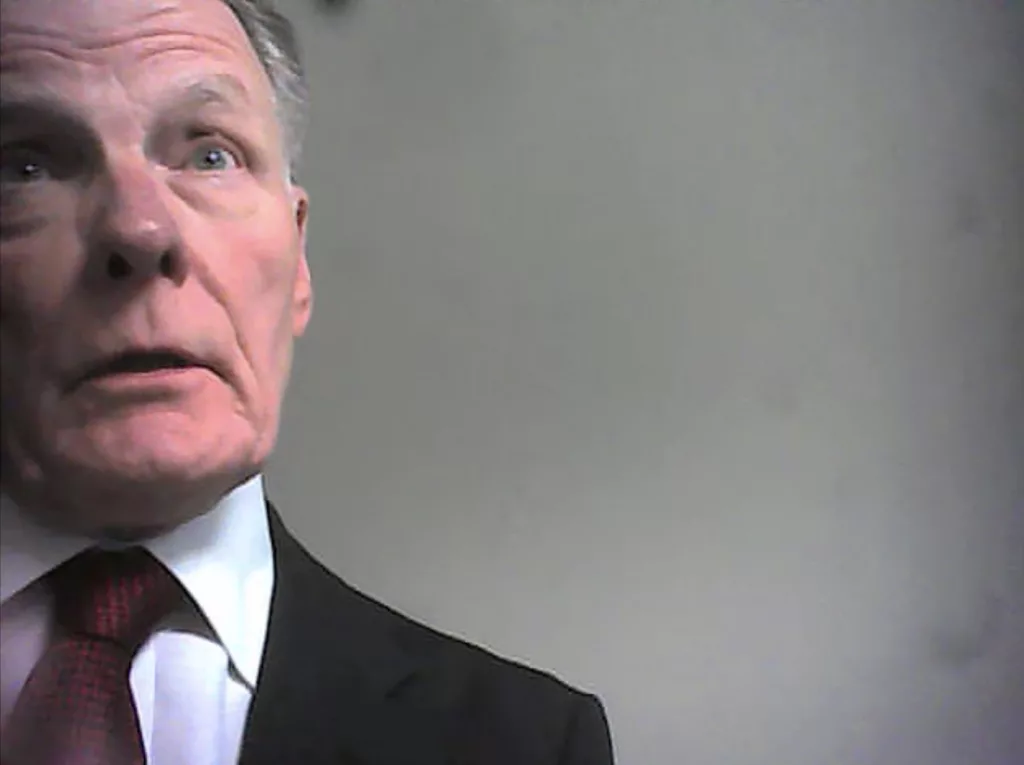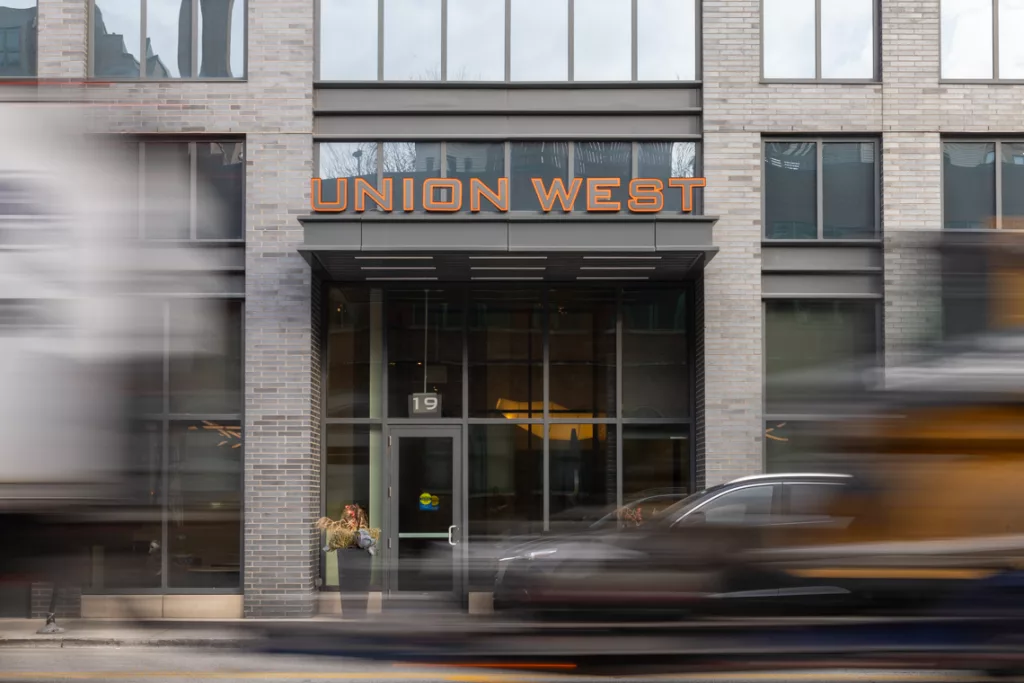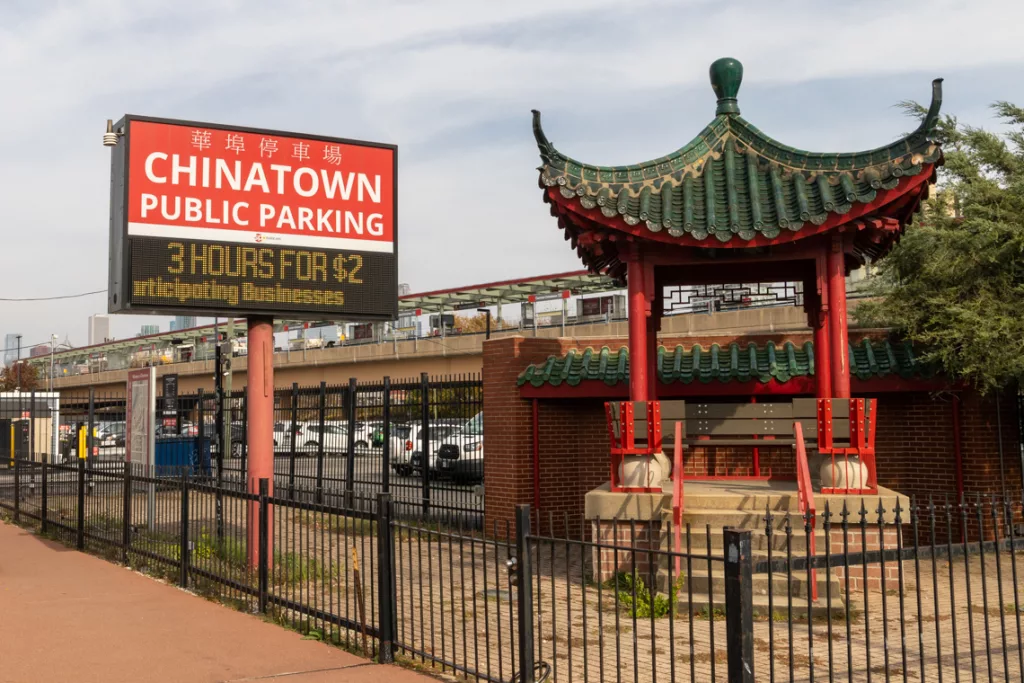
By HANNAH MEISEL
Capitol News Illinois
hmeisel@capitolnewsillinois.com
CHICAGO – Then-Chicago Ald. Danny Solis had already been cooperating with the FBI for a little more than a year in June 2017 when he received an unexpected voicemail from powerful Illinois House Speaker Michael Madigan.
“Danny, it’s Mike Madigan,” began the brief message, which included none of what the speaker wanted from Solis, who was at the time a 21-year veteran of Chicago City Council and the chair of the council’s influential Zoning Committee.
In a federal courtroom on Monday, Solis testified that his call back to the speaker two minutes later opened a whole new avenue of focus for the feds’ still-unfolding corruption investigation, and added Madigan to the list of people he would surreptitiously record and lure into the FBI’s trap.
After a brief wait on hold with the speaker’s law office, during which the phone system played the orchestral “In the Hall of the Mountain King,” a movie soundtrack favorite for characters devolving into madness, Madigan picked up.
After pleasantries – including the speaker dryly joking that he “never had it so good” even as his protracted battle with Republican Gov. Bruce Rauner meant the state was nearing two years without a budget – Madigan said he’d just read about a proposed real estate development in Chicago’s booming West Loop neighborhood.
“Do you think that’s gonna go forward?” the speaker asked in the June 12, 2017 call.
Solis explained that he was waiting to put things on the agenda of his zoning committee until the conclusion of a study that would give guidelines for further development in the West Loop. The neighborhood had in recent years seen unprecedented levels of residential construction and a vibrant food scene after more than a century as merely an industrial corridor.

“Do you know the developer?” Solis asked Madigan.
“No, but I’d like to,” the speaker replied.
The alderman said he’d “see what I can do to get you an introduction.”
On the witness stand, Solis said he knew Madigan was trying to solicit business for his law firm, which specialized in real estate, including property tax appeals.
Nearly two weeks later, Solis called Madigan back at the FBI’s direction, telling him that once he met with a representative from the Union West development project the following week, he’d set up a meeting between them and Madigan.
“I think they understand – they’ve got some issues that they still have to deal with me in terms of zoning,” Solis said before explaining the timing of the meetings. “I think they understand how this works, you know, the quid pro quo.”
“Yeah, okay,” Madigan said.
On Monday, nearly 7 ½ years after that conversation, Assistant U.S. Attorney Diane MacArthur asked Solis why he’d used the phrase “quid pro quo” in the call.
“I don’t know,” Solis said after a pause. “It was dumb.”
“Say that again, please?” MacArthur asked, one of many times she asked Solis to keep his voice up during his hours on the stand Monday.
“I thought it was too blunt but basically what I was trying to say was we could have this meeting and he could probably get business from them, and I could work on the zoning,”
Solis testified that his FBI contacts hadn’t instructed him to use the phrase. But according to testimony from Special Agent Ryan McDonald last week, Solis was carrying out directions to give Madigan the impression that the alderman’s approval of necessary zoning changes was contingent on the developers hiring the speaker’s law firm.
But it wasn’t true. In a secret video recording Solis made of a meeting between himself and Union West developer Andrew Cretal a week later, Solis pushed the idea of Madigan’s law firm handling property tax appeals for the project, but didn’t tie any zoning approval to that hiring. In fact, Solis referenced having already committed to approving the zoning changes and was only held up by waiting for the results of the West Loop development study.
A few weeks later, Solis brought Cretal and his colleague to Madigan’s downtown Chicago law office to meet with the speaker and his law partner, Vincent “Bud” Getzendanner. In the meeting, which lasted a little over half an hour, Madigan was mostly silent, letting Getzendanner explain how the firm usually handled property tax appeals for large developments.
But prosecutors were most interested in what happened before the meeting, when Madigan pulled Solis into his office and closed the door, admonishing the alderman in a near-whisper.
“Over the phone, you made a comment that there, that there was a quid pro quo,” a visibly younger Madigan said in the video – the only time in the entire recording the speaker’s face could be seen for more than a brief flash via the shaky body camera.
“Oh, I’m sorry. Yeah,” Solis said.
“You shouldn’t be talking like that,” Madigan said. “You’re just recommending our law firm because if they don’t get a good result on the real estate taxes, the whole project would be in trouble. Which is not good for your ward. So you want high quality representation.”
Since prosecutors first highlighted this exchange in pre-trial motions more than two years ago, the feds have characterized it as Madigan providing a false story for Solis. The former speaker’s lawyers played the clip in their opening arguments, with attorney Tom Breen remarking that “I guess the government thinks Madigan should’ve punched him (Solis) out or something.”
“No, Mike doesn’t talk that way, he doesn’t act that way,” Breen said last month, previewing what’s likely to be an intense cross-examination of Solis.
But MacArthur on Monday noted that Madigan still went forward with scheduling the meeting even after Solis made his “quid pro quo” remark, and that it was the speaker who had contacted Solis in the first place to make an introduction.
“Did you have concerns at that point that a bad result on real estate taxes would not be good for your ward?” MacArthur asked regarding the Union West project.
“No,” Solis said.
The alderman also asked Madigan if they could talk privately again after the larger meeting about a separate proposed development project in Chicago’s Chinatown neighborhood, which was also in Solis’ 25th Ward.
In their post-meeting chat, Solis explained that real estate investors were lined up and gathering community support to build a mixed-use development on a portion of a longstanding surface parking lot in the heart of Chinatown. But the land was actually owned by the state of Illinois and leased to a not-for-profit that ran the parking lot.

Solis explained that in order for the project to move forward, the state would need to transfer the land to the city of Chicago, which could in turn sell it to the developers.
A couple months later, Solis called Madigan on both matters. The alderman asked if the speaker’s law firm had ultimately contracted with the Union West developers, and Madigan responded that he was “almost positive the answer is yes” but said he’d check with Getzendanner.
When Solis asked about the contract again when the two connected nearly a week later in September 2017, Madigan didn’t directly answer.
“You were contemplating processing something,” Madigan said. “You should go ahead and process that.”
As the wiretapped calls played in the courtroom Monday, Madigan faced away from Solis toward his defense table, temple of his reading glasses between his lips as he listened intently.
MacArthur made much of the speaker’s cryptic language, asking what Solis understood Madigan meant by “process that.”
“The support and passage of the Union West zoning change,” Solis said.
MacArhur also led Solis through a series of questions Monday about the personally embarrassing circumstances that led to the FBI’s interest in the alderman in 2014.
Solis’ money problems began during the Great Recession; he and his wife were upside down on the mortgage on their home near the University of Illinois at Chicago’s Circle Campus. In 2009, Solis began an affair with a translator he met on a trip to China with other city officials to see the aftermath of the 2008 Beijing Olympics as Chicago was pursuing a 2016 summer Olympic bid.
That translator introduced him to a Chinese-based developer who had interest in building in Chicago, Solis testified. In one memorable episode, the developer left a briefcase full of cash — equivalent to $10,000 USD — on a bed in a hotel room. Solis said the woman he was with took the cash back to Chicago, where she spent most of it on furniture to outfit an apartment Solis would eventually live in once his wife kicked him out.
“I think he (Li) was giving it to me to influence me in the work he was trying to do in the States,” Solis testified.
Some of that work included a visa program Solis was involved with in partnership with his sister Patti Solis Doyle and Brian Hynes, a politically connected businessman whom Solis counted as a close friend.
The EB-5 visa program granted residency to foreign nationals who invested in economic development projects that led to American jobs, Solis testified.
But Solis’ financial situation continued to deteriorate during his separation from his wife, as the bank foreclosed on his home. To make ends meet, Solis used a credit card belonging to his 25th Ward Regular Democratic Organization, of which he was the chairman and 25th Ward committeeman, and a series of private loans.
Solis also testified that Hynes and another friend, Juan Gaytan, provided him with Viagra. Asked why Solis didn’t just pursue a prescription, he said it was “more convenient and quicker than contacting my doctor.” But he also acknowledged the Viagra was meant to influence him; Gaytan’s security firm held contracts with the city and was looking for Solis to connect him with other governments for additional contracts.
Hynes also arranged for massages for Solis — the kind that end with a sexual act, the former alderman testified. That too, was meant to influence him, as was a 2015 trip to Las Vegas Gaytan paid for, in addition to the lavish party developer Fred Latsko paid for on an Indiana farm for Solis’ son’s graduation. Solis said he only paid for the tips to the servers hired for the party.
Hynes and Gaytan also provided Solis with tickets to Chicago sporting events, though Solis said he often gave those away to constituents or family. When MacArthur asked why none of those gifts ever showed up on Solis’ campaign disclosure or statements of financial interest, Solis said it was “a mistake.”
“I thought they were friends and I was wrong,” Solis said. “I made a mistake.”
Capitol News Illinois is a nonprofit, nonpartisan news service that distributes state government coverage to hundreds of news outlets statewide. It is funded primarily by the Illinois Press Foundation and the Robert R. McCormick Foundation.
